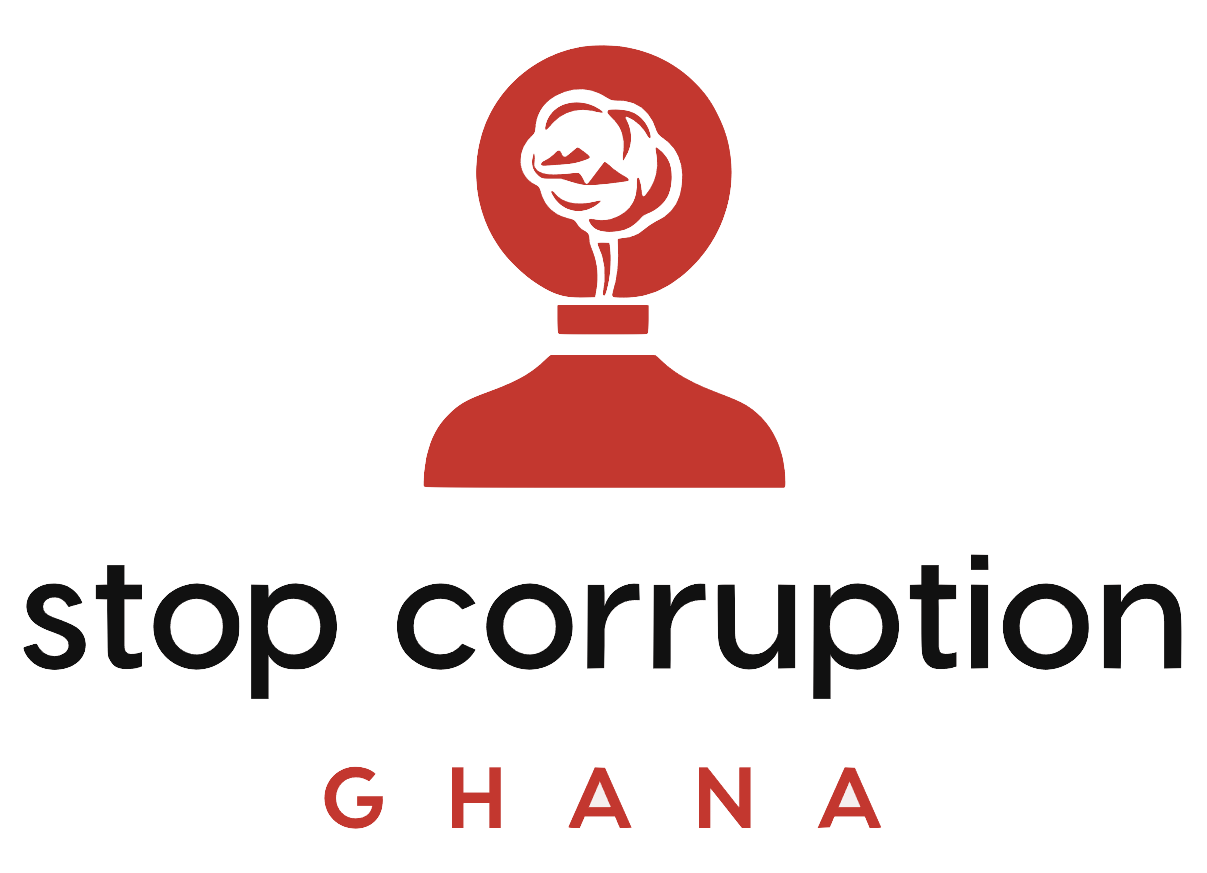Background
- Ghana faces governance deficits- corruption, limited accountability, and weak rule of law enforcement. The country scores below average on the Government Effectiveness Index (48.2%) between 2010 and 2019 and the Transparency International’s Corruption Perception Index (CPI) (43%) over the last 4 years (2020-2023).
- Weaknesses in Ghana’s rule of law, accountability and anti-corruption regime is symptomatic of ineffectiveness in horizontal accountability structures, and weak enforcement and sanctioning systems.
- Citizens and civil society efforts to improve accountability and rule of law are not only sporadic but impeded by limited knowledge of the existing structures and tools.
Project Objectives (Outcomes)
- Mobilize, empower and incentivize citizens (including women and youth) and citizen groups to actively report and speak against corruption.
- Increase the use of the media and investigative journalism in detecting and exposing corruption.
- Advocate for reforms of public ethics regulations including public asset
declaration, campaign financing regulations and internal control regime. - Monitor the compliance of public procurement law, conflict of interest and the implementation of audit recommendations.
- Promote inter-agency collaboration in the implementation of preventive anti-corruption measures and systems.
Goal
Contribute to strengthening public accountability, rule of law and responsiveness through the empowerment of civil society and media, improvement in internal control regime and promotion of reforms on preventive anti-corruption measures.
Activities and Interventions
-
Mobilize, Empower and Incentivize Citizens
- Training 720 citizens, including women and youth, on corruption identification and reporting in 24 selected districts in Ghana.
- Conduct forums for awareness creation and sensitization in 24 project districts in Ghana.
- Develop an electronic platform for tracking and sharing information on public procurement and audit recommendations.
- Facilitate anonymous reporting of corruption cases.
-
Increase the Use of Media and Investigative Journalism
- Continue Corruption Watch at the national level and expand to sub-national media houses.
- Train 20 investigative journalists across the country.
-
Advocate for Reforms of Public Ethics Regulations
- Undertake a corruption gap assessment of public ethics and campaign financing regulations.
- Engage parliament, political parties, anti-corruption institutions, and media for policy uptake.
-
Promote Inter-Agency Collaboration and Coordination
- Organize bi-annual forums for selected accountability and public anti-graft agencies.
Critical Assumptions
- The provision of training, education, and reporting avenues including an “E-Platform” will incentivize and activate citizens and change their attitude and behaviour from being passive to engaging in exposing corruption and demanding accountability
- Partnerships and capacitating media and investigative journalists will enable them to continue to expose corruption through producing and publicizing credible evidence
- Inclusive multi-stakeholder dialogues among policy actors and institutions will promote acceptance, adoption and implementation of recommendations on reforms of public ethics regulations.
- Multi-stakeholder engagements of key public accountability institutions will promote frequent interactions, exchange of ideas and effective working relationships in the implementation of various preventive anti-corruption measures.
Duration
- A 36-month project that spans from 2024 - 2027
Scope
- The project is being implemented in 24 districts selected from four zones: the northern belt, the middle belt, the southern belt and the coastal belt of Ghana.
Target group (s)
- Civil society organizations (CSOs) and Community-based organizations (CBOs)
- Citizens and citizens groups (including women, youth and persons living with disabilities (PWDs) groups)
- Media
- Political parties
- Public anti-corruption institutions: Judiciary, Parliament, Commission on Human Rights and Administrative Justice (CHRAJ), Office of the Special Prosecutor (OSP), Financial Intelligence Center (FIC), Public Procurement Authority (PPA), Internal Audit Agency (IAA)
- Metropolitan Municipal and District Assemblies (MMDAs)
Implementing Organizations
- Ghana Center for Democratic Development (CDD-Ghana)
- Ghana Integrity Initiative (GII)
- Ghana Anti-Corruption Coalition (GACC)
Donor Organisation
- The project is funded by the European Union
